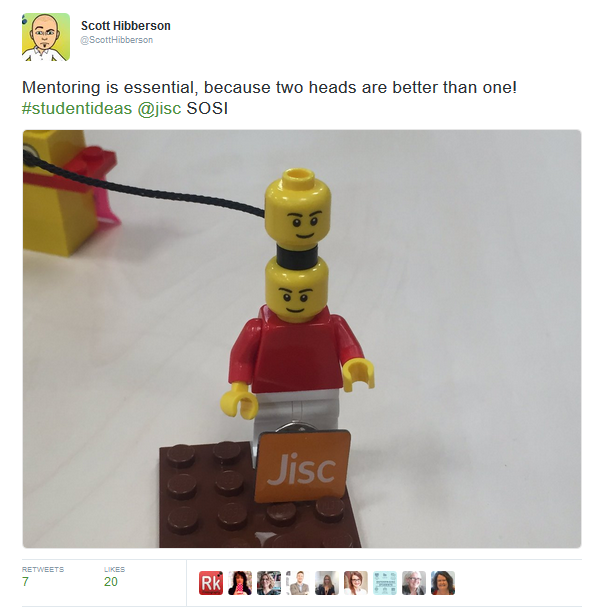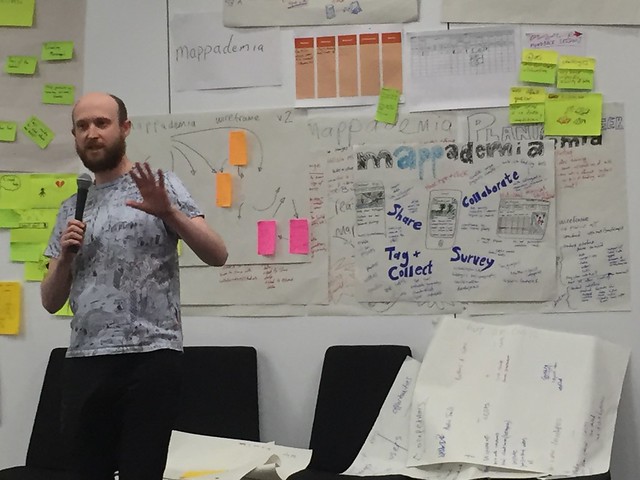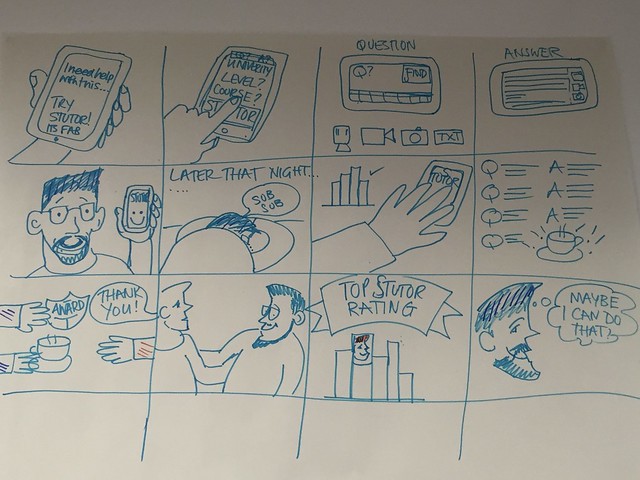Since Jisc announced the 15 winners of the Student Ideas competition back in June there’s been alot of excitement over the summer in taking those ideas forward. For the last week the Subject Specialists, Chris Thomson, Rohan Slaughter, Julia Taylor and myself have been working with colleagues in Jisc to support the students through the design sprint in Birmingham to help shape their ideas and take them to the next level.
It’s clear from the Jisc Ideas elevator site that the competition was particularly fierce this year with a rich variety of ideas from students on how technology can provide solutions to real challenges facing students today.
The design sprint brief guided the student groups through the stages of unpacking their ideas, planning the design and storyboarding, and then building a wireframe prototype before pitching their ideas to everyone on the final day – a Herculean undertaking! It was a rigorous process with plenty of opportunities for the students to explore the potential challenges of seeing their ideas come to fruition and gain feedback from their peers and mentors to refine their respective products.
Thinking through who the prospective audience would be and how their idea would make life easier for their users was a critical part of that process. Chris Thomson delivered a session on storyboarding and stressed how uncovering the personal experiences of individuals and the narrative emerging from this can really help to bring the user story to life and drive home why there is a strong business case for the students’ idea (you can find out more about digital storytelling from Chris on the Jisc blog here). The student groups created some really engaging user stories to help encapsulate the issues that students face today – here’s just one example from Stutor:
I took over the mantle of mentoring some of the student groups from Chris on day three of the design sprint which joined up with the previous sessions on user stories by exploring the users in more detail – through the use of Lego! I think it’s fair to say this appealed to the child in all of us and we all had a lot of creative fun with Lego to bring the user stories to life. Justin Haylock from Jisc lead this session where the students were tasked with the creative challenge of building their typical user and their products in Lego to illustrate how their idea meets the needs of the users.
Here’s one example from one of the student groups who focussed on a mentoring app to support students (taken from Twitter):-

There’s a selection of photos taken from the design sprints (Lego and otherwise – but mainly Lego!) available on Flickr and if you’d like to catch up on the reflections from attendees during the design sprint on Twitter a Storify is also available here.
In terms of next steps the student groups are taking on board feedback from the judges following their pitches in advance of London later in the month – visit the Summer of Student Innovation blog for more updates and follow #studentideas on Twitter.
The post Summer of Student Innovation #studentideas appeared first on Inspiring learning.


